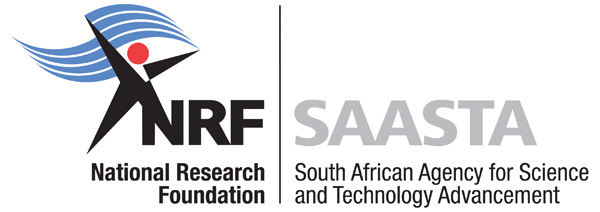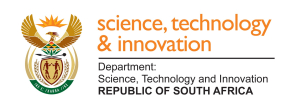- BACKGROUND
- EVENT PROGRAMME
- PRESENTATIONS
Transparency in research and innovation processes is often seen as critical in shaping public perceptions of emergent technologies and building public trust. The public concerns related to genetically modified foods (GMOs) in the early 2000s remain a lesson to the scientific community and signified a transition to a new era in which the public can no longer be regarded as passive recipients of scientific products. Through the nanotechnology programme coordinated in accordance with the National Nanotechnology Strategy (NNS) led by the Department of Science and Innovation (DSI), has made progress on ensuring responsible nanotechnology developments are aligned the outcomes of all stakeholders in South Africa.
Through DSI’s nanotechnology risk research platform, South Africa’s efforts on building capacity for identifying risks associated with nanotechnology and mitigation will be instrumental to ensure potential risks do not impede developments in this technology. With the focus to consider its expected contribution to the fourth industrial development agenda. Experts in this field highlight an essential aspect of risk assessments, which the occupational health, safety and environmental (HSE) impact of nanotechnologies by publicly funded and private research institutions should not be regarded as a separate undertaking but be embedded in the nanotechnology innovation value chain. For the commercialisation of nanotechnology products to be successful, disclosure of the key research and innovation processes involved in the production of nanomaterials may improve transparency and likely increase consumer acceptance of nanotechnology products. Generally, science has been shown to be uncertain, but the effective communication of that uncertainty is important and lessons may be drawn from the GMO’s situations.
Narrative
The webinar will create awareness of the nanotechnology innovation value processes as a way to forge transparency and build public trust in nanotechnology products. The aspect is shown not inhibitive in its design but complementary and in support of the overall innovation chain. To support the HSE aspects, the communication of risks and uncertainty will be critical and public and private institutions are encouraged to design.
Objectives
- To disclose the key nanotechnology innovation value chain processes relating to the HSE aspects in order to enhance transparency in nanotechnology.
- To highlight the importance of effective communication in nanotechnology, especially uncertainty, to promote the public trust and acceptance of nanotech-products.
- To encourage research collaborations between public and private sector stakeholders to ensure evidence-based policy in nanotechnology (i.e. regulations)
- Download full Webinar programme here
- Prof. Mary Gulumian: The concept of Safe and Sustainable by Design (SSbD) of Nanotechnology and its implementation in South Africa
- Dr. Marina Joubert: Evidence-based science communication
Meet Our Speakers
Dr. Melusi Thwala
Designation: Manager- Science Advisory and Strategic Partnerships
Dr. Marina Joubert
Designation: Researcher
Prof. Mary Gulumian
Designation: Extraordinary Professor
Recorded Video

Contact Us
Kedibone Monyebodi
Project Officer
kedibone@saasta.ac.za




 The South Africa Agency for Science and Technology Advancement (SAASTA) is a business unit of the
The South Africa Agency for Science and Technology Advancement (SAASTA) is a business unit of the 